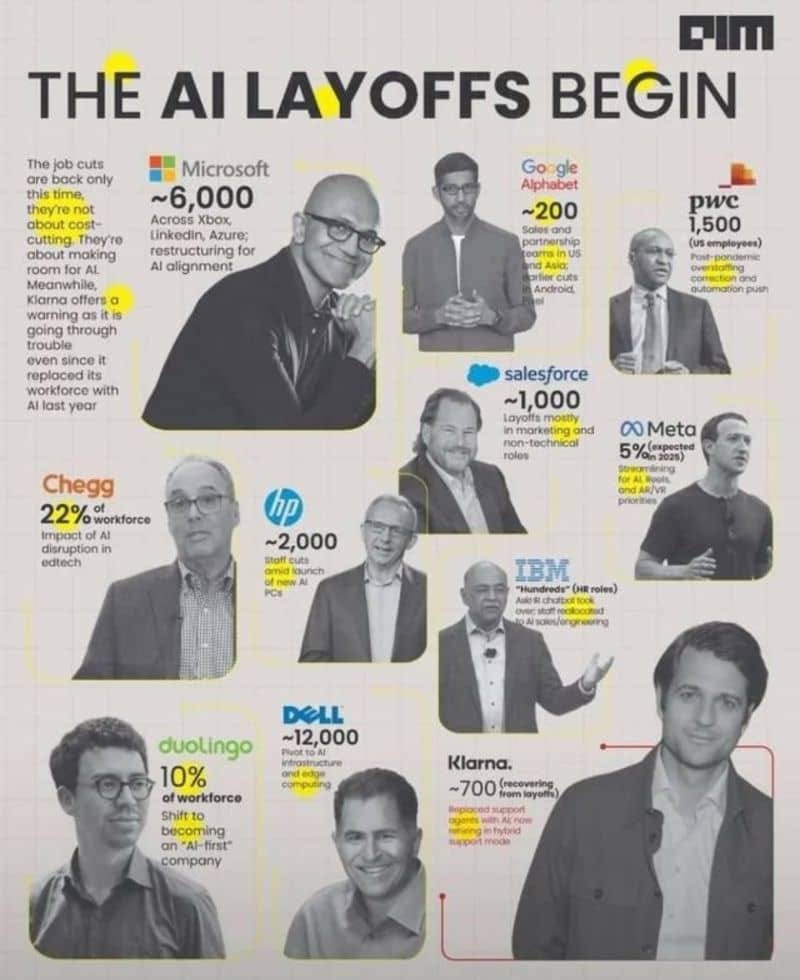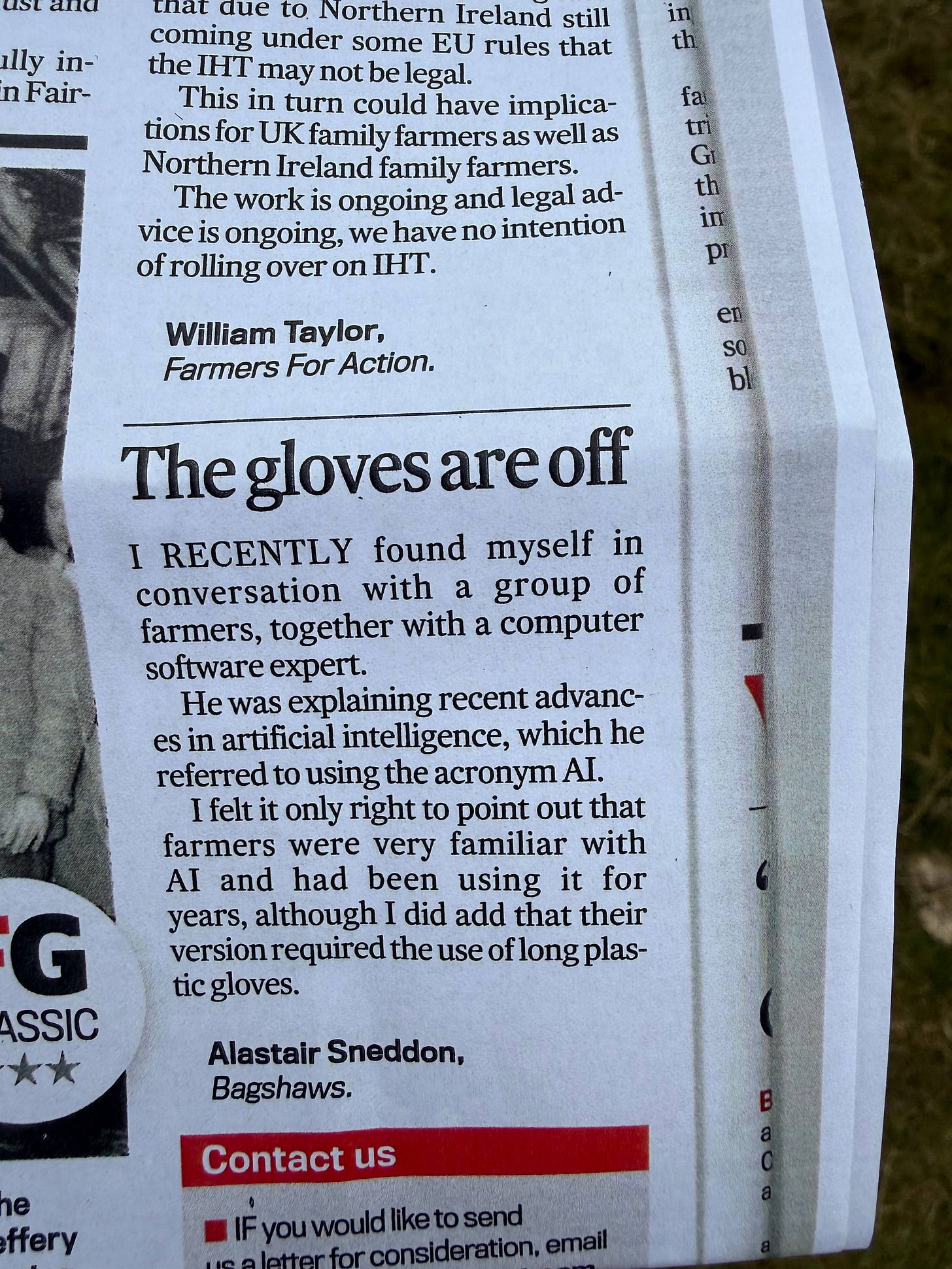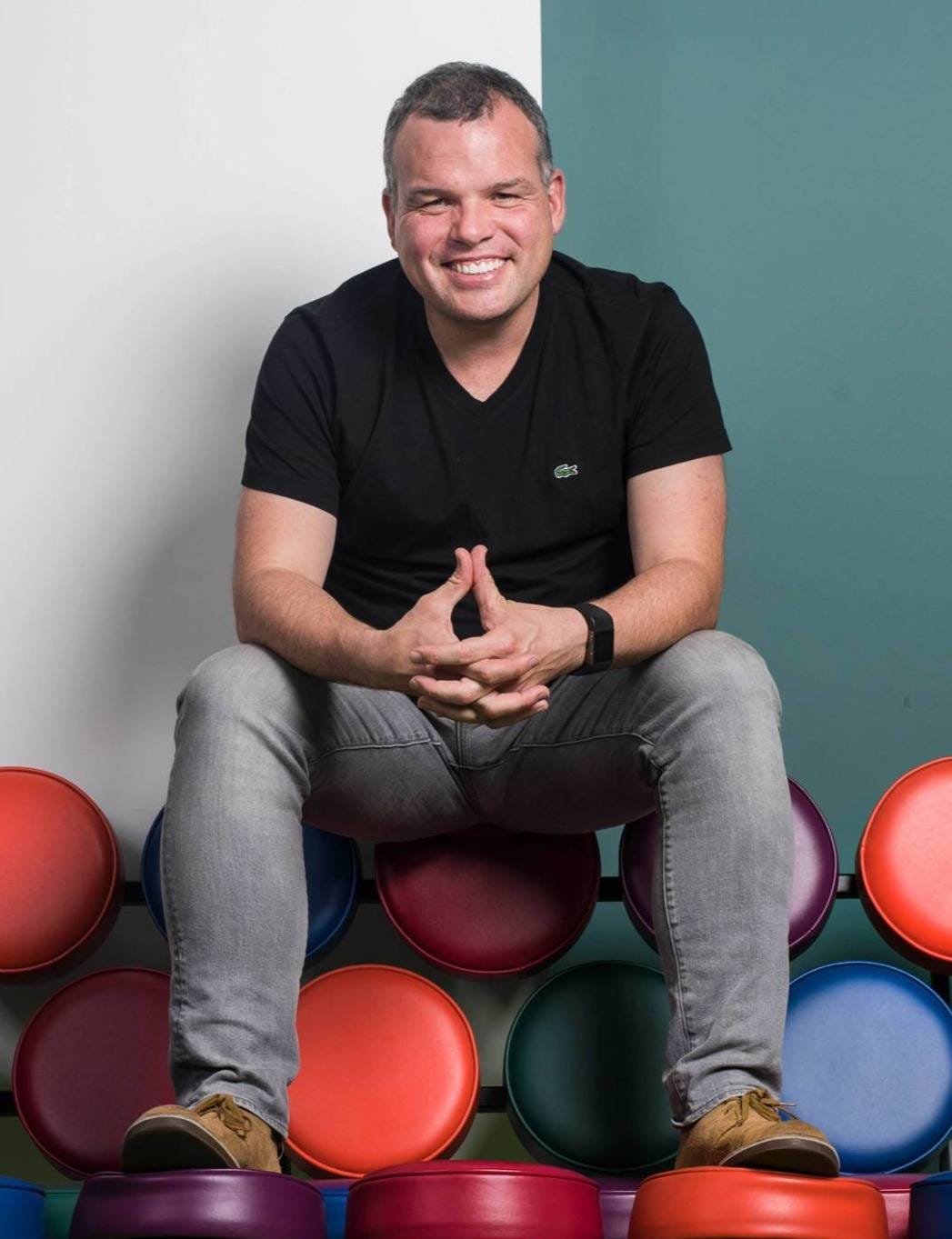The Sunday Signal: Anger in the Machine
Essential Insights on Tech’s Impact, Leadership Lessons, and Navigating Human Potential Issue #19 – Sunday 24 August 2025
⏱️ 10 min read
The Bottom Line Up Front
Last week, we explored how artificial intelligence is testing the limits of privacy and accountability. This week, we turn to the social and human consequences. In Portland, a pro-AI gathering descended into chaos when protesters vandalised cars and spread manifestos calling AI an existential threat. At the same time, job cuts are sweeping the global technology industry as companies shed thousands of roles to make room for machines. And on a lighter note, as President of the Longshaw Sheepdog Trials, I was reminded that some traditions cannot be automated and should never be surrendered to the cult of progress.
Anger at the Gates
The first riot of the AI era did not happen in Silicon Valley or Washington. It happened in Portland, Oregon. A summer business gathering, attended by academics, builders and policy advocates, was stormed by protesters who slashed tyres, hurled paint and sprayed graffiti. They left behind a pamphlet titled Butlerian Jihad Against AI, calling for the annihilation of the very people who are trying to make the technology safer.
The scenes were ugly and cowardly. Cars vandalised. Attendees shaken. A manifesto soaked in the rhetoric of death. The anger was directed not at the handful of corporations that are driving this revolution but at ordinary professionals, many of them working on AI ethics, accessibility, health care and inclusion. The mob saw elites with cocktails. In truth, they saw a mirror of their own fears: job insecurity, dislocation and a future they feel powerless to shape.
This is why it matters. The grievances are not imagined. The sense that people have no say in how technology reshapes their lives is real and corrosive. When governments fail to provide voice and leadership, destruction replaces debate. Portland will not be the last eruption. It is a glimpse of how economic anxiety mutates into social violence.
The lesson is as clear as it is urgent. This cannot be left to closed-door summits or glossy press releases. Citizens must be part of the conversation. Local leaders, employers and communities must be drawn in. The question is not whether AI advances. It is whether the transition tears societies apart or is navigated with care. Ignore the warning, and the vandalism of a car park will look trivial compared to what follows.
📖 Credit for images and original reporting to Suzame Tong.
Lay-offs in the Age of AI
Adapted from my regular column in this week's Yorkshire Post
The pink slips are falling, not because of inflation or a financial crash, but because of machines. Microsoft is cutting six thousand workers. Dell is eliminating twelve thousand. HP has announced two thousand more as it launches its AI-powered PCs. Meta is slicing entire teams to refocus on AI and virtual reality. Even Google is sweeping out staff by the hundred as it reorganises around artificial intelligence.
These are not cyclical cuts. They are permanent shifts. Companies are not pausing for leaner times. They are clearing space for algorithms.
The same story is playing out elsewhere. Chegg, once the darling of education technology, eliminated a quarter of its workforce after announcing it would become an “AI-first” company. Duolingo cut ten per cent of staff. Klarna replaced hundreds of support agents with chatbots.
The numbers tell a wider truth. In the United States, the unemployment rate for computer science graduates now exceeds seven per cent, more than double that of art history majors. It is a bitter irony. For years, young people were told that to “learn to code” was to guarantee a future. Governments, schools and media pushed the same line. Parents invested. Students borrowed. Now a cohort of graduates finds itself shut out by the very tools it was promised would secure prosperity.
This is only the beginning. The World Economic Forum predicts ninety-two million jobs displaced by 2030. McKinsey estimates as many as eight hundred million roles worldwide could be automated away. These numbers are staggering, but they are not abstract. They mean graduates flipping burgers. Skilled workers sitting idle. Communities stripped of livelihoods.
The debate is not whether AI can increase efficiency. Of course it can. The question is whether societies will prepare their people for the transition or leave them to the wolves. Reskilling programmes, apprenticeships, vocational training, and safety nets are not optional luxuries. They are the minimum standard of responsibility.
British politicians must face this honestly. Promising a land of milk and honey while ignoring the human cost is not leadership. The AI revolution is real. It is here. And it is already taking jobs away. If we do not respond with urgency, the anger in Portland will be the anger in our own streets.
Sheepdogs and the Things We Keep
Later this week, I will be in the Peak District, standing on a hillside, not in a conference room. As President of the Longshaw Sheepdog Trials, I will have the privilege of opening a tradition that has run since 1898.
The trials are simple and beautiful. A shepherd whistles. A dog runs. A flock moves as one. Skill and instinct dance in plain sight. It is a test of patience, intelligence and connection between human and animal. The scene has barely changed for more than a century.
I was reminded of this permanence in a conversation with Alastair Sneddon, President of the Dovedale Trials and a livestock auctioneer. When I mentioned AI, he thought I meant artificial insemination. Farmers have been using that form of AI for decades. It requires long plastic gloves, not algorithms. We laughed, but there was a serious point beneath it. Some things cannot be replaced.
The truth is that no machine will ever replicate what happens at Longshaw. No dataset can substitute for the intuition of a collie scanning a hillside. No algorithm can replace the whistle of a handler guiding sheep across heather and stone. To believe otherwise is to misunderstand what makes us human.
In an age of machines that promise to optimise everything, we need to remember the things that should never be optimised. Culture. Heritage. The quiet pride of a craft handed down. The bond between people, animals and land. These are not inefficiencies to be stripped away. They are the essence of a life worth defending.
If you want to witness something that cannot be automated, join us at Longshaw this Thursday, Friday or Saturday. It is more than a competition. It is a reminder of what endures when fashions fade and when technology tries to claim too much.
🚀 Final Thought
The Line We Must Hold
The age of AI is not a distant prospect. It is here. It is rewriting careers. It is fuelling riots. It is unsettling communities. To ignore this is to stumble blindfolded into a storm.
At the same time, Longshaw reminds us that not everything bends to the machine. Some things are worth defending not because they are efficient but because they are human.
The future will not be judged by how fast we can build machines, but by whether we have the wisdom to protect what they must never replace.
Until next Sunday,
David
David Richards MBE is a technology entrepreneur, educator, and commentator. The Sunday Signal offers weekly insights at the intersection of technology, society, and human potential.
© 2025 David Richards. All rights reserved.







